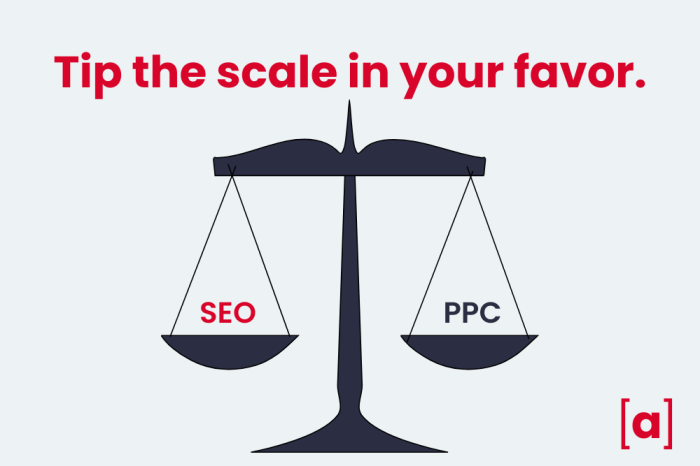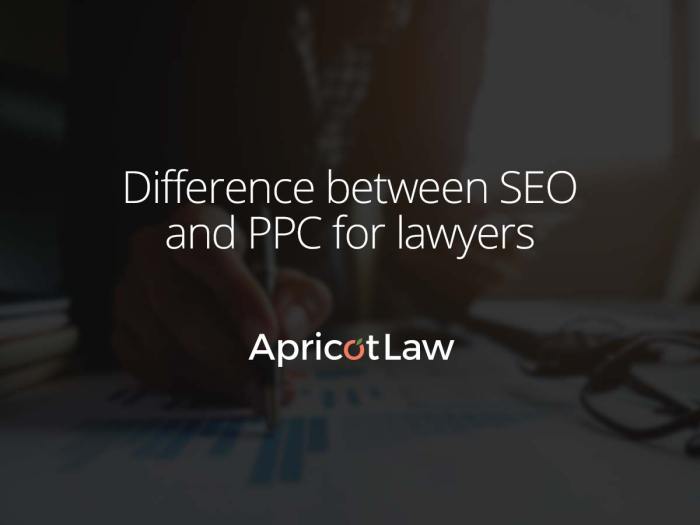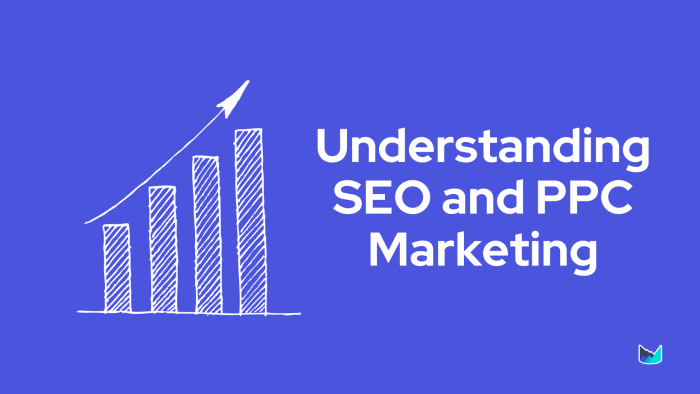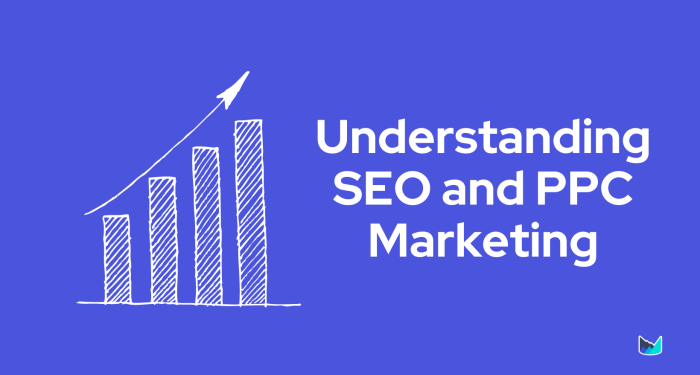Exploring the realm of and PPC for legal marketers unveils a world of opportunities to enhance online presence and drive conversions. Let's delve into the strategies and techniques that can elevate your marketing efforts in the legal industry.
Importance of in Legal Marketing
plays a crucial role in helping law firms enhance their online presence and reach their target audience effectively. By implementing strategies, legal marketers can improve their website's visibility, attract more organic traffic, and generate leads.
Strategies for Legal Marketers
- Optimizing website content with relevant s related to legal services.
- Creating high-quality and informative blog posts on legal topics to establish authority.
- Building quality backlinks from reputable legal websites to boost credibility.
- Utilizing local tactics to target clients in specific geographic areas.
Impact of on Online Visibility and Lead Generation
Effective can significantly increase a law firm's online visibility, making it easier for potential clients to find them through search engines. By ranking higher in search results, legal websites can attract more qualified leads and conversions.
Best Practices for Incorporating into Legal Marketing Strategies
- Regularly update website content with relevant s and fresh information.
- Optimize meta tags, titles, and descriptions to improve click-through rates.
- Create a mobile-friendly website design for better user experience and rankings.
- Analyze and monitor performance using tools like Google Analytics to make data-driven decisions.
Understanding PPC for Legal Marketers

PPC, or Pay-Per-Click advertising, is a digital marketing strategy where advertisers pay a fee each time their ad is clicked. In the legal industry, PPC can be highly relevant as it allows law firms to target specific s related to legal services and only pay when a potential client clicks on their ad.
Relevance of PPC in Legal Marketing
- PPC can generate immediate traffic to a law firm's website, increasing visibility and potential client leads.
- It allows law firms to target specific geographic locations and demographics, ensuring their ads are seen by relevant audiences.
- PPC offers measurable results, making it easier to track the success of advertising campaigns and adjust strategies accordingly.
Comparison with Other Digital Marketing Strategies
- Unlike , which focuses on organic search results, PPC provides immediate visibility at the top of search engine results pages.
- Compared to traditional advertising methods, PPC offers more targeted and cost-effective options for reaching potential clients.
- Social media marketing may engage audiences, but PPC ensures that law firms appear prominently when potential clients are actively searching for legal services.
Setting Up a PPC Campaign for a Law Firm
- Research relevant s related to legal services and create compelling ad copy.
- Set a budget and bidding strategy to ensure cost-effective ad placement.
- Create landing pages that are tailored to specific ad campaigns to maximize conversions.
- Monitor and analyze campaign performance regularly to make necessary adjustments for optimal results.
Key Metrics to Track PPC Success
- Click-through Rate (CTR): Measures the percentage of users who clicked on an ad after seeing it.
- Conversion Rate: Indicates the percentage of users who completed a desired action, such as filling out a contact form or making a phone call.
- Cost Per Conversion: Calculates the average cost incurred for each successful conversion generated through PPC ads.
- Quality Score: Assesses the relevance and quality of s, ad copy, and landing pages, influencing ad placement and cost.
Techniques for Legal Websites

Implementing effective techniques is crucial for increasing visibility and attracting potential clients to legal websites. Here are some essential strategies specific to law firms:
On-Page Tactics for Legal Websites
- Include relevant s: Conduct research to identify terms that potential clients are searching for and strategically incorporate them into website content, meta tags, and headers.
- Optimize meta descriptions: Craft compelling meta descriptions that accurately summarize the content of each page and entice users to click through to the website.
- Create valuable content: Develop informative and engaging content that addresses common legal questions and concerns, positioning the website as a reliable resource in the legal field.
Off-Page Strategies for Law Firms
- Build quality backlinks: Establish partnerships with reputable legal directories, industry publications, and other authoritative websites to earn backlinks that boost the website's credibility and search engine rankings.
- Engage in social media: Share relevant content on social media platforms to increase brand awareness, drive traffic to the website, and encourage user engagement.
- Monitor online reviews: Encourage satisfied clients to leave positive reviews on platforms like Google My Business and Yelp to enhance the firm's online reputation and local search visibility.
Optimizing Content for Search Engines on Legal Websites
- Use heading tags: Structure content with H1, H2, and H3 tags to organize information logically and improve readability for both users and search engines.
- Incorporate multimedia: Enhance content with images, videos, and infographics to enrich the user experience and increase engagement, as multimedia elements can also be optimized for search engines.
- Regularly update content: Keep website content fresh and relevant by publishing new blog posts, articles, case studies, or legal updates to demonstrate expertise and authority in the legal industry.
Importance of Local for Law Firms Targeting Specific Regions
- Claim Google My Business listing: Ensure accurate business information, such as address, phone number, and business hours, is consistent across all online platforms to improve local search rankings and visibility.
- Create local content: Produce content tailored to local audiences, such as legal guides for specific regions or city-specific blog posts, to attract local clients and establish a strong local presence.
- Solicit local backlinks: Seek backlinks from local organizations, chambers of commerce, or community websites to signal relevance to search engines and enhance local search visibility.
Maximizing ROI with PPC for Legal Services
In the world of legal marketing, Pay-Per-Click (PPC) advertising can be a powerful tool to drive traffic to your website and generate leads. However, to truly maximize the return on investment (ROI) from your PPC campaigns, it is essential to implement effective strategies and techniques tailored to the legal sector.
Increasing Conversion Rates through PPC Advertising
- Utilize targeted s: Conduct thorough research to identify the most relevant and high-converting s for your legal services.
- Optimize ad copy: Craft compelling ad copy that highlights your unique value proposition and encourages users to take action.
- Implement ad extensions: Take advantage of ad extensions such as callouts, sitelinks, and structured snippets to provide additional information and enhance the visibility of your ads.
Budgeting Tips for Effective PPC Campaigns in the Legal Sector
- Set clear goals: Define specific objectives for your PPC campaigns and allocate your budget accordingly to maximize results.
- Monitor performance: Regularly track key performance indicators (KPIs) such as click-through rates, conversion rates, and cost per acquisition to optimize your budget allocation.
- Utilize geotargeting: Target your ads to specific geographic locations to reach potential clients in your target market effectively.
Retargeting Techniques for Law Firms Using PPC
- Implement pixel tracking: Use retargeting pixels to track website visitors and display targeted ads to users who have previously engaged with your site.
- Create customized audiences: Segment your retargeting audience based on their behavior on your website to deliver personalized ads that resonate with their interests.
- Offer incentives: Use retargeting ads to provide special offers or promotions to encourage previous visitors to convert into leads or clients.
Role of Landing Pages in Maximizing ROI for Legal PPC Campaigns
- Design high-converting landing pages: Create landing pages that are tailored to the specific needs and interests of your target audience to improve conversion rates.
- Optimize for mobile: Ensure that your landing pages are mobile-responsive to provide a seamless user experience across all devices.
- A/B testing: Continuously test different elements of your landing pages, such as headlines, CTAs, and images, to identify the most effective variations for driving conversions.
Final Summary

In conclusion, mastering the art of and PPC is crucial for legal marketers to stay ahead in the digital landscape. By implementing the right tactics and measuring success, firms can effectively reach their target audience and achieve their marketing goals.
FAQ Summary
How can benefit law firms?
can improve a law firm's online visibility, attract more relevant traffic, and ultimately generate more leads.
What are some key metrics to track for PPC success?
Important metrics to track for PPC campaigns include click-through rate, conversion rate, cost per click, and return on ad spend.
Why is local important for law firms?
Local helps law firms target specific regions or areas where they operate, increasing their chances of being discovered by potential clients in those locations.









![5 Best eCommerce Marketing Digital Agencies [2024 Edition]](https://share.radartasik.id/wp-content/uploads/2025/08/Best-E-Commerce-Marketing-Agencies-2048x1024-1-120x86.jpg)
